The 4th Fractional Order Mechatronics System and Control Seminar was successfully held on December 30, 2023, at South China University of Technology (SCUT). The seminar was organized by Technical Committee of Fractional Order Systems and Control, Chinese Association of Automation, hosted by the School of Automation Science and Engineering at South China University of Technology, and co-hosted by the journal of Control Theory and Applications.
The seminar featured renowned experts and scholars from both domestic and international institutions, including Professor YangQuan Chen from the University of California, Merced, Professor Tao Ran from Beijing Institute of Technology, Professor Yan Peng from Shandong University, Professor Zeng Caibin, Professor Wang Xiaohong, Professor Luo Ying, and Professor Pan Zhifeng from South China University of Technology, Professor Zhang Bithao from the Hong Kong University of Science and Technology, Professor Li Zhifu from Guangzhou University, Dr. Zheng Weijia from Foshan University, and Dr. Chen Pengchong from Zhengzhou University. Each guest delivered thematic presentations on various aspects of Fractional Order Mechatronics System and Control, sharing their latest findings, research outcomes, and related reflections. Executive Vice-President Professor Pei Hailong and Professor Tian Lianfang et al also attending the seminar. The conference was chaired by Professor Luo Ying and Professor Wang Xiaohong from South China University of Technology.

Seminar site
Professor YangQuan Chen from the University of California, Merced, gave a presentation titled From Fractional order mechatronics to smart mechatronics. The report outlined the application of fractional calculus in mechatronics integrated modeling and control over the past decade. It particularly emphasized the indispensable role of fractional order modeling and control in bio-mechatronic systems, such as rehabilitation and exoskeletons, aimed at serving humanity. The report proposed that the future research direction should focus on imparting intelligence to mechatronics integrated systems, incorporating various self-aware features like performance awareness, health condition awareness, safety awareness, attack awareness, and fault awareness. It also highlighted ample opportunities for applying fractional calculus in future research to achieve intelligent mechatronics.

Professor YangQuan Chen is giving a report
Professor Tao Ran from Beijing Institute of Technology presented on Fractional Domain Signal Processing Theory and Technology. The report focused on fractional domain signal processing and its applications, providing an overview of domestic and international research teams and their latest progress. It introduced the fractional domain signal processing system formed by theoretical methods such as fractional domain sampling, fractional domain filtering, and fractional domain time-frequency analysis. The applications of this system in areas like radar detection, electronic reconnaissance, communication navigation, and optical measurement were discussed. The report emphasized the critical role of fractional domain signal processing in addressing major national demands, including high-speed and high-acceleration target detection and identification, synthetic aperture high-precision passive positioning, high-dynamic and high-sensitivity navigation, and relay measurement and control. The exploration of fractional domain signal processing combined with hyperspectral remote sensing data in fields like agriculture, forestry, and wetlands was also examined. Future directions and potential applications of fractional domain signal processing were discussed.
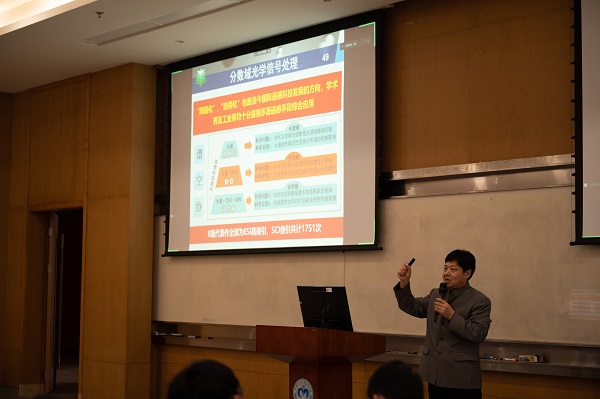
Professor Tao Ran is giving a report
Professor Yan Peng from Shandong University presented on Design, Control, and Application of Full Piezoelectric Micro-Nano Servo Systems. The report introduced recent research progress by Professor Yan Peng's team in the design methods and high-dynamic, high-precision nano-servo technology for full piezoelectric flexible micro-motion systems. The focus was on the engineering applications of these technologies in precision engineering fields such as the National Synchrotron Radiation Laboratory's Nano Probe Line Station and integrated circuit equipment.
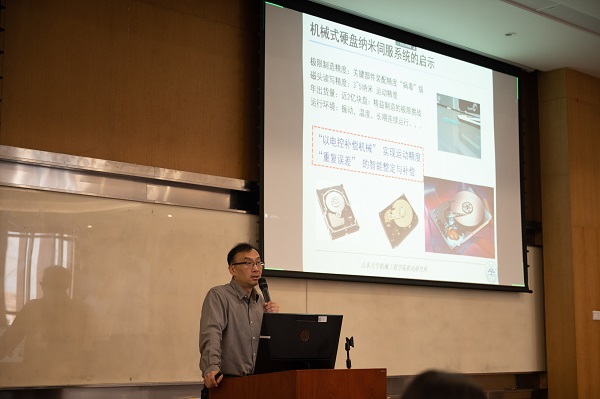
Professor Yan Peng is giving a report
Professor Wang Xiaohong's team from South China University of Technology, with Pan Zhifeng as the speaker, presented a report titled Control Strategy of LCL Grid-Connected Inverter Inverter-Side Current Feedback Based on Improved Repetitive Control - Fractional Order Self-Disturbance Rejection. The report introduced the Fractional Order Self-Disturbance Rejection Control (FOLADRC) strategy based on the Fractional Order Linear Extended State Observer (FOLESO) for LCL grid-connected inverters. The report highlighted the effective suppression of system resonance peaks through the disturbance compensation characteristics of FOLESO. Additionally, the report introduced an improved Repetitive Control (RC) strategy with a phase-locked loop using a low-pass filter without phase shift and a reduced-order frequency adaptive phase lag element, further enhancing the system's ability to suppress periodic current harmonics.

Dr. Pan Zhifeng is giving a report
Professor Zeng Caibin from South China University of Technology presented a report titled Existence and Smoothness of Stable Manifolds for a Class of Stochastic Partial Differential Equations. The report pointed out that classical stochastic analysis tools are no longer applicable due to the fact that fractional Brownian motion is neither a Markov process nor a semimartingale. In order to study the long-term dynamic behavior of stochastic differential equations driven by noise, such as fractional Brownian motion, the report established the pathwise integration of fractional Brownian motion in an appropriate fractional Sobolev space based on fractional calculus theory. By utilizing pathwise integration, rough path theory, and interpolation function space theory, a suitable new Banach space was constructed, successfully solving the problem of the existence of invariant stable manifolds for nonlinear stochastic partial differential equations in infinite-dimensional spaces, known as the famous Lu-Schmalfuss conjecture. The report also reviewed the application of fractional calculus in pathwise integration, along with the original ideas and key results.
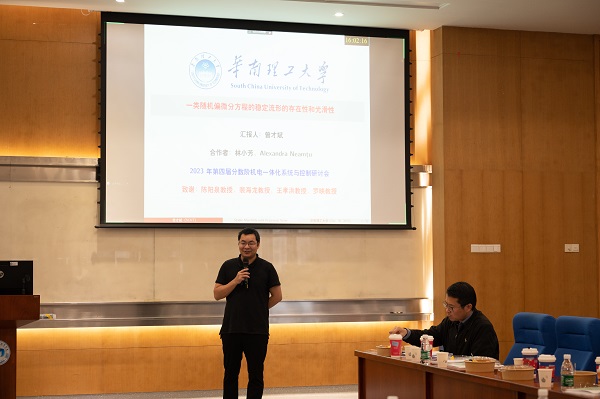
Professor Zeng Caibin is giving a report
Professor Luo Ying from South China University of Technology presented a report titled Fractional Order Motion Systems and Control. The report provided an overview of Professor Luo Ying's research group's main research content and related results in exploring new theories and methods for fractional order modeling and control of motion systems. The report emphasized the advantages of a refined representation based on fractional order theory, establishing accurate fractional order models for precision motion systems considering mechanical, electrical, thermal characteristics, and couplings. It proposed new methods for identifying fractional order system parameters. Leveraging the advantages of adjustable order and scalable fractional order, the report introduced a series of novel fractional order controller structures and systematic design schemes that consider both time and frequency aspects. It demonstrated the stability of typical precision fractional order motion systems, breaking through the performance limits of traditional motion tracking and disturbance control. The research group successfully developed precision motion platforms and servo-driven fractional order control systems, applied with success in international enterprises or institutions in fields such as high-density storage hard drives and small unmanned aerial vehicles.
Professor Cao Kecai from Nanjing University of Technology presented a report titled Sampled-Data Feedback Controller based on Co-Design of Sampling Period and Control Gain: From integer order to fractional order. The report pointed out that with the increasing use of digital computers in controller implementation, there is a significant demand for discrete controllers, especially with a preference for sampled data design. By utilizing only the latest or oldest available state information for controller design, a jointly designed sampled data controller was formulated. The report derived the sufficient and necessary conditions for the global asymptotic stability. The compensation scheme between scaling gain and sampling period introduced much-needed flexibility in choosing various sampling periods to stabilize sampled data for fractional continuous linear systems, providing significant advantages for digital implementation.
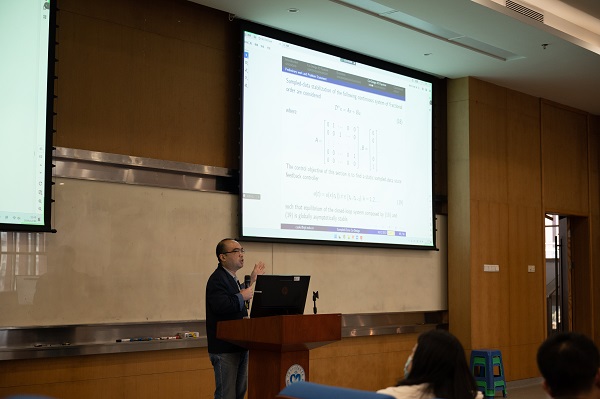
Professor Cao Kecai is giving a report
Professor Zhang Bitao from the Hong Kong University of Science and Technology presented a report titled Application of Fractional Calculus Theory in Motor Control. The report, addressing the chaotic behavior of motors, revealed deficiencies in traditional integer-order calculus theories in describing motor mechanism models. It introduced the study of motor modeling and optimization control using fractional calculus theory, sharing advancements from traditional PID control algorithms and iterative control algorithms based on integer-order calculus theory to advanced algorithms such as PID control algorithms and robust control algorithms based on fractional calculus theory. Finally, the report showcased the beneficial results and industrial applications of these algorithms in motor control.
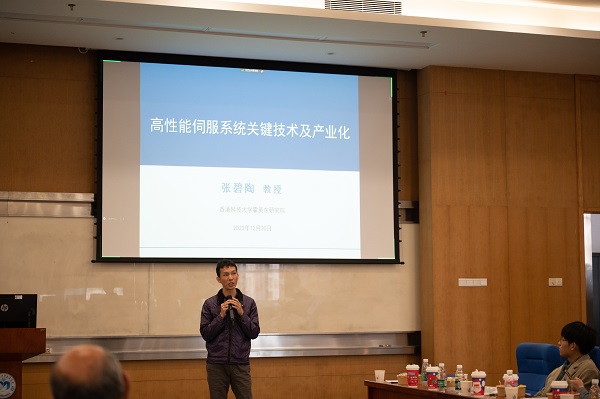
Professor Peng Yan is giving a report
Professor Li Zhifu from Guangzhou University presented a report titled Hysteresis and Fractional Order Modeling of Piezoelectric Drive Actuators. The report began by reviewing the current research status of modeling and control methods for hysteresis in smart material actuators. Subsequently, it introduced an adaptive control scheme to compensate for hysteresis in nonlinear systems using the Prandtl-Ishlinskii hysteresis model. Finally, the report presented a novel hysteresis fractional order modeling method for a piezoelectric positioning platform and provided experimental verification results.

Professor Li Zhifu is giving a report
Dr. Zheng Weijia from Foshan University presented a report titled Fractional Order Disturbance Rejection Control and Its Application in Permanent Magnet Synchronous Motor Servo Systems. The report, starting from the application context of permanent magnet synchronous motor servo control, addressed issues such as model uncertainty, external disturbances, and sampling noise. It discussed the design and synthesis of various fractional order controllers, including fractional order PID controllers, fractional order robust controllers, and disturbance-compensated fractional order composite controllers, forming practical methods for designing fractional order controllers. The effectiveness of the control methods was verified through numerical simulations and experiments in motor control.
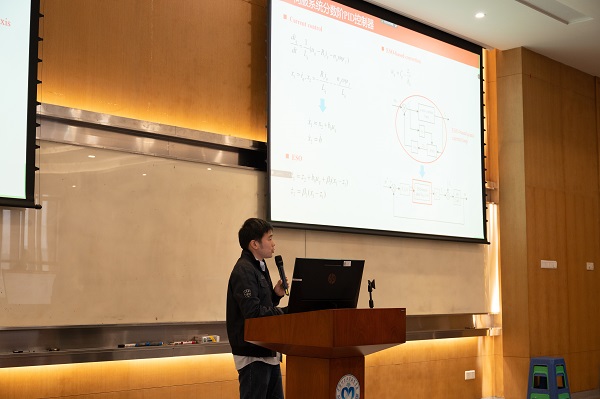
Dr. Zheng Weijia is giving a report
Dr. Chen Pengchong from Zhengzhou University presented a report titled Research and Application of Model-Assisted Fractional Order Sliding Mode Control. The report introduced how to make full use of model information, address different types of disturbances in systems, and construct a model-assisted fractional order sliding mode control framework. It briefly outlined its applications in servo motor systems, air flotation platforms, and continuum robots.
The seminar attracted over a hundred experts, scholars, and graduate students both online and offline. Participants engaged in extensive exchanges, showcasing the latest academic achievements, learning from each other, and successfully achieving the goals of the seminar. This not only deepened participants' theoretical understanding of fractional order mechatronics systems and control but also provided new perspectives for future research directions. The series of research outcomes are expected to have a profound impact on the future development of the industrial and technological sectors, driving continuous progress in technological innovation.
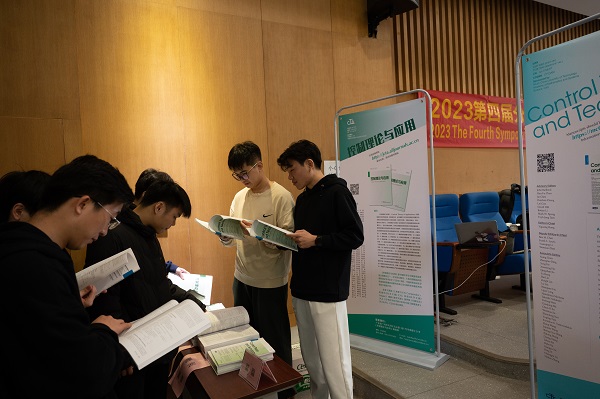
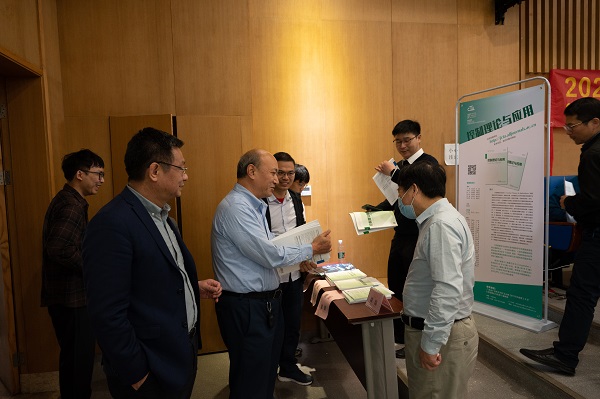
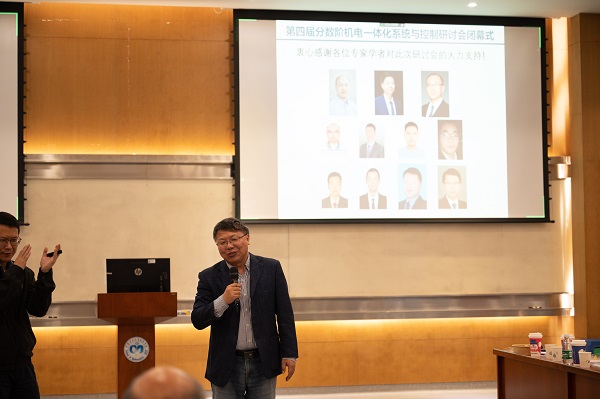
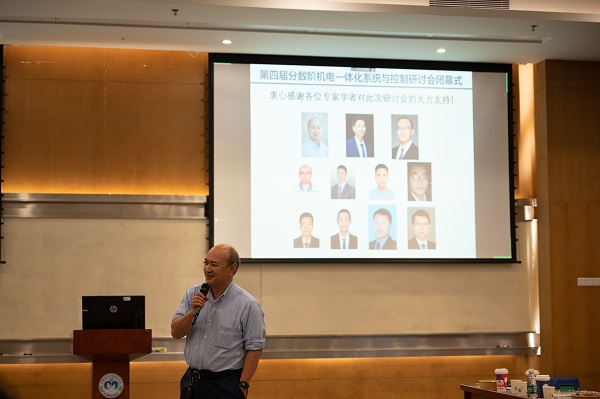
Forum discussion

